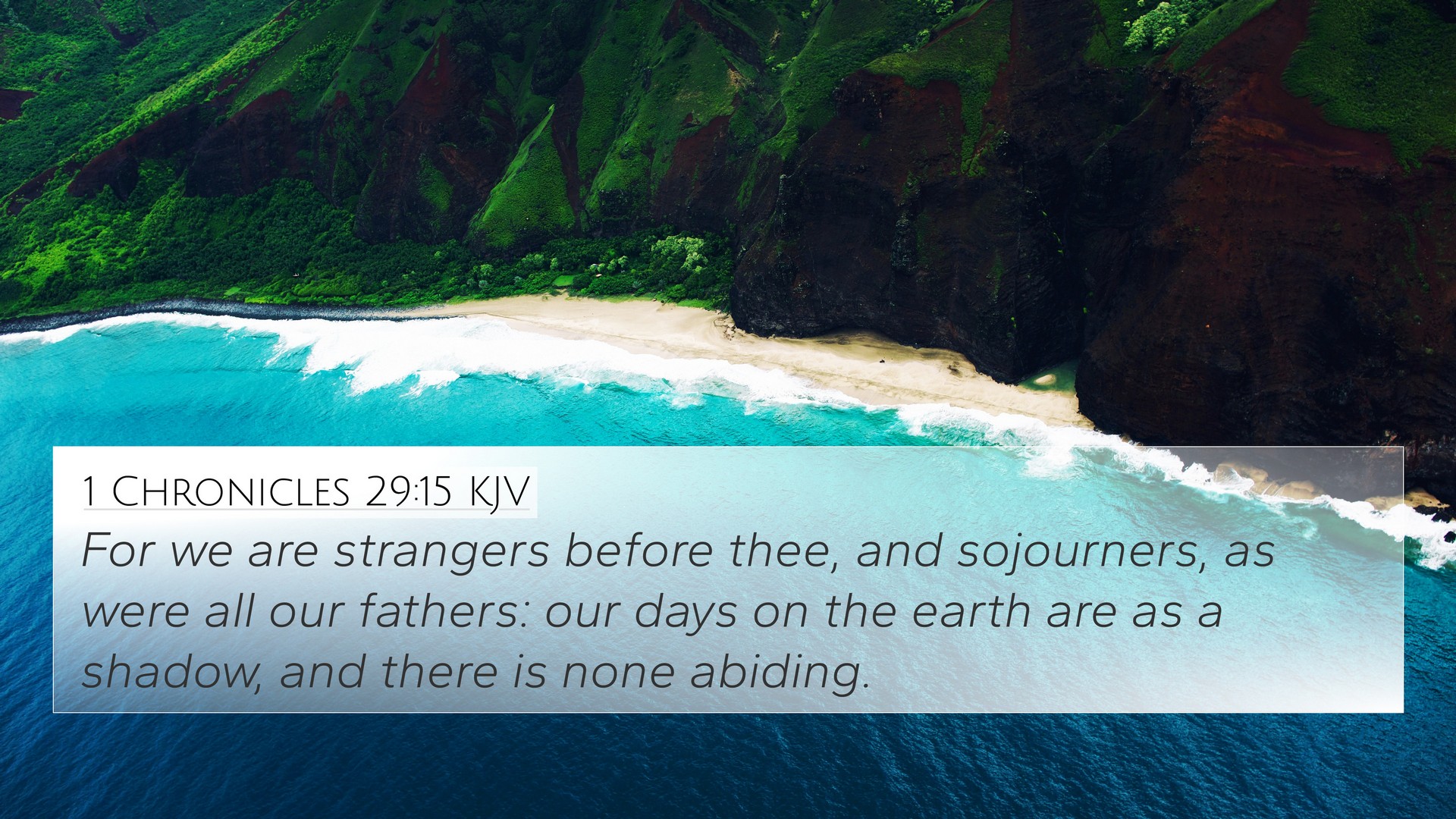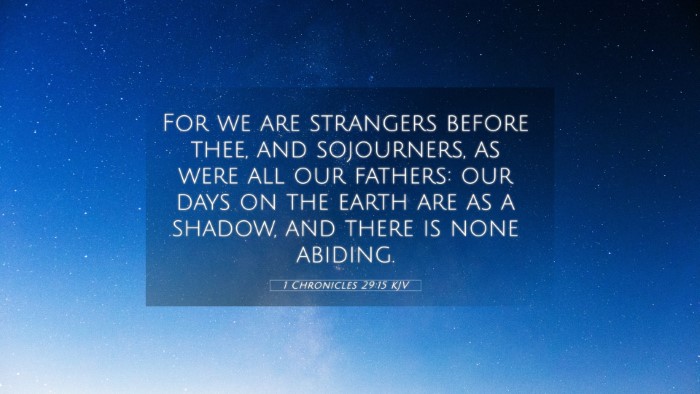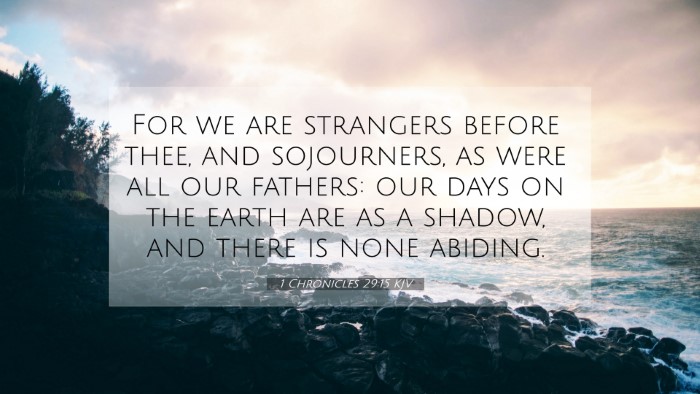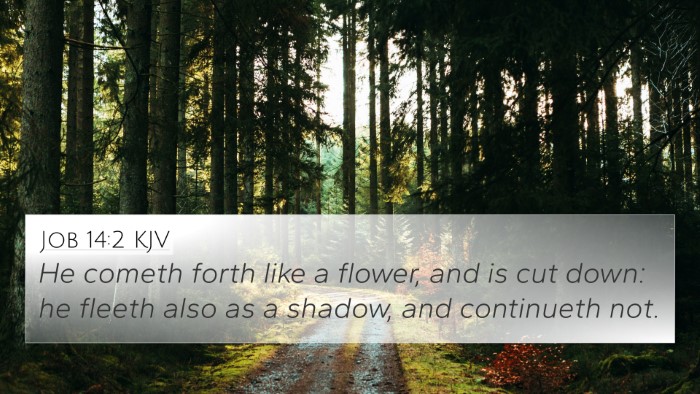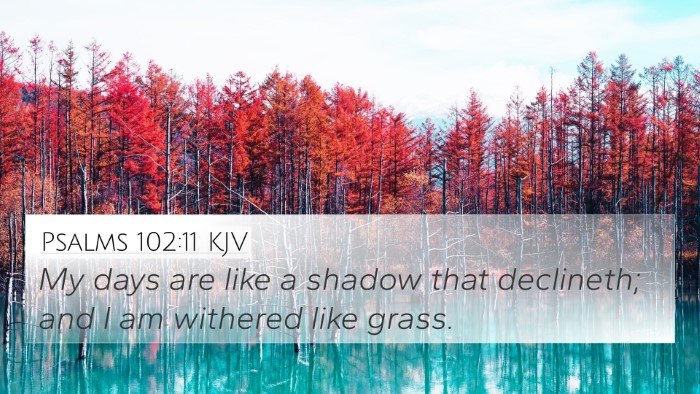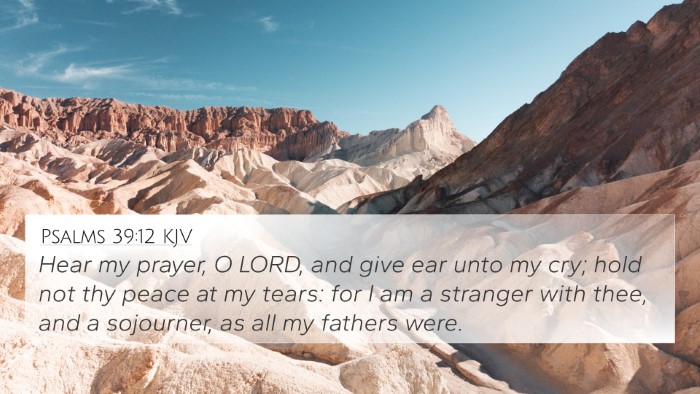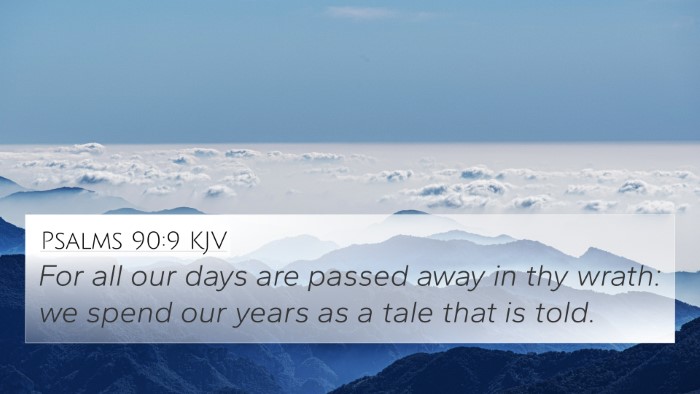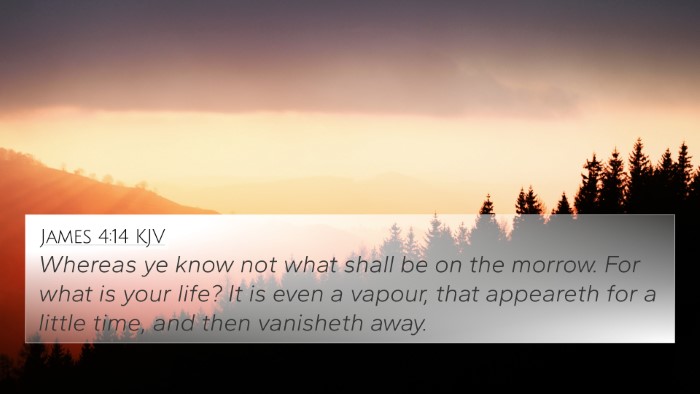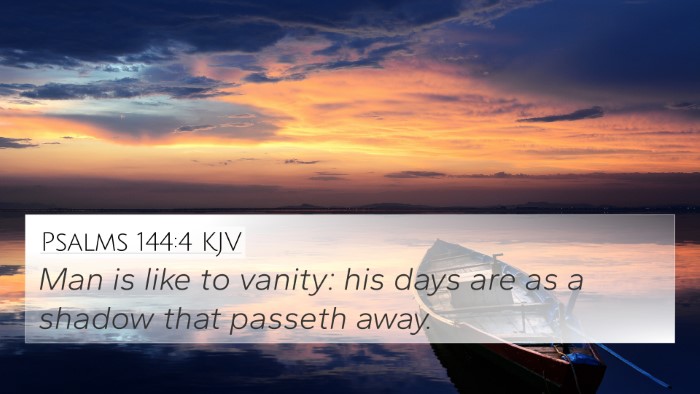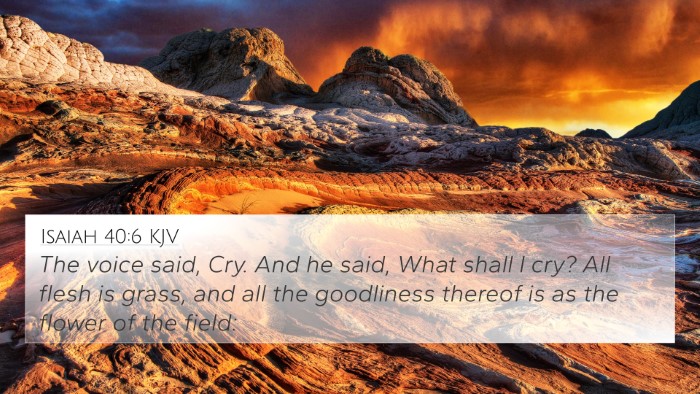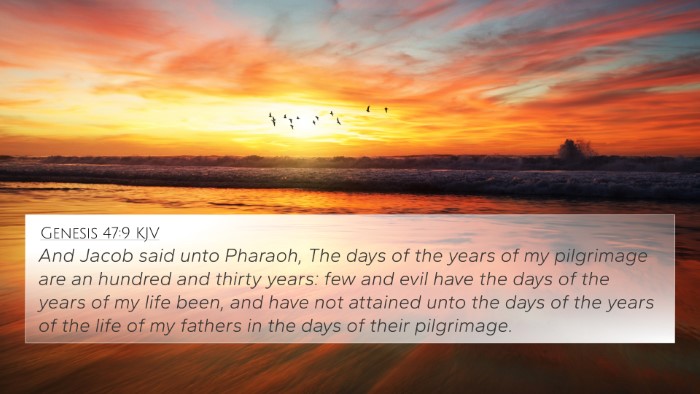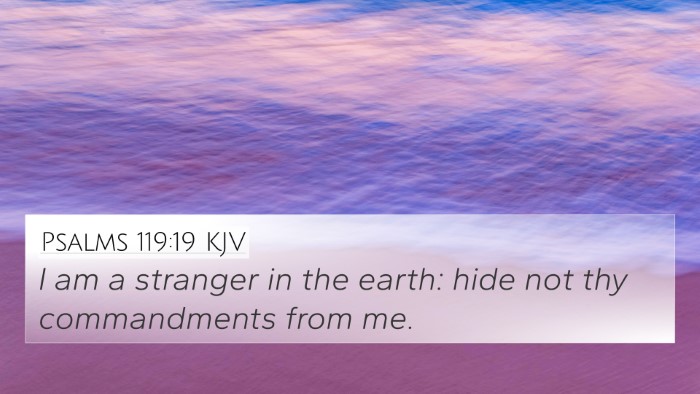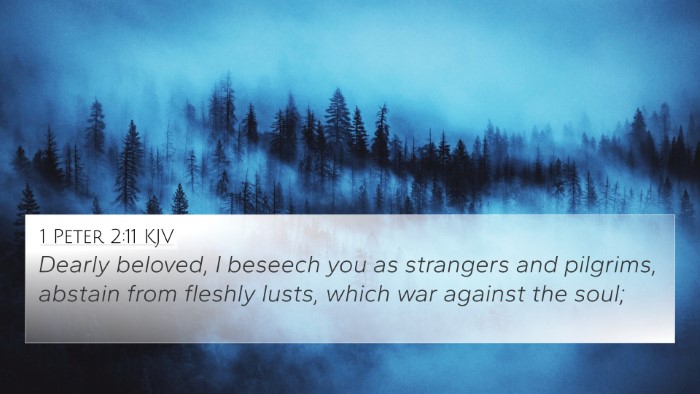Understanding 1 Chronicles 29:15
Verse: "For we are strangers before thee, and sojourners, as were all our fathers: our days on the earth are as a shadow, and there is none abiding."
This verse conveys profound truths regarding humanity's transient nature and relationship with God. Below, we will explore the insights from public domain commentaries and cross-reference related scriptures for deeper understanding.
Insights from Commentaries
Matthew Henry's Commentary
Matthew Henry emphasizes the idea of humanity being "strangers" and "sojourners" on Earth. He reflects on the fleeting nature of human life, comparing our time on Earth to a "shadow" that soon disappears. This highlights our dependence on God and the importance of prioritizing spiritual pursuits over worldly concerns. Henry advises readers to keep a humble mindset, recognizing that all human life is temporary and our eternal home lies with God.
Albert Barnes' Notes
Albert Barnes elaborates on the concept of "strangers" before God, framing it within the context of earthly life. He notes that all humans, including David's ancestors, faced mortality and the inevitability of death. This perspective encourages believers to focus on spiritual rather than material wealth. Barnes also draws attention to the communal aspect of this relationship, reflecting on how the people of Israel collectively acknowledge their status before God.
Adam Clarke's Commentary
Adam Clarke provides a detailed analysis, urging readers to reflect on their lives as temporary sojourns. He points out that David acknowledges God's sovereignty and mercy by noting human frailty and the brevity of life. Clarke stresses the importance of seeking God's favor while recognizing that our earthly existence is not lasting. This acknowledgment serves as a reminder to cultivate a relationship with God that's rooted in humility and gratitude.
Bible Cross References
1 Chronicles 29:15 resonates with several other scripture passages. Below are some verses that deepen the understanding of its themes:
- Hebrews 11:13-16: Highlights the lives of the faithful as strangers and pilgrims on Earth, seeking a heavenly homeland.
- Psalm 39:12-13: A cry to God for understanding the brevity of life and the nature of existence.
- Psalm 102:11: Compares human days to a fading shadow, reinforcing the ephemeral nature of life.
- James 4:14: Reminds us of life's uncertainty, comparing it to a vapor that appears for a little time.
- 1 Peter 2:11: Encourages believers to consider themselves as strangers and pilgrims, encouraging a life set apart for God.
- Ecclesiastes 1:2: Affirms the vanity of life and its fleeting nature.
- Job 14:1-2: Discusses the nature of human life as a fleeting moment, reinforcing the idea of life's transience.
Thematic Bible Verse Connections
The connections between these verses and 1 Chronicles 29:15 underscore several themes:
- Transience of Life: Many verses convey the idea that life is short and fleeting, prompting believers to seek deeper eternal truths.
- Human Frailty: These passages collectively highlight human vulnerability and dependence on God.
- Divine Sovereignty: They reinforce God's authority over earthly matters and encourage submission to His will.
- Community Acknowledgment: Several verses reflect a communal understanding of our temporary existence, promoting unity in seeking God.
Cross-Referencing Biblical Texts: A Guide
For those interested in engaging more deeply with the themes from 1 Chronicles 29:15 and its similar verses, here are some tools and methods for Bible cross-referencing:
- Bible Concordance: An essential tool for locating verses and understanding their context.
- Bible Cross-Reference Guide: Guides help correlate related verses, enhancing comparative study.
- Cross-Reference Bible Study: Techniques for studying themes by connecting various scriptures.
- How to Use Bible Cross-References: Learning to find and apply connections between verses can deepen one’s understanding.
Conclusion
1 Chronicles 29:15 reflects the transient nature of human life, inviting believers to approach God with a humble spirit. Exploring this verse through commentaries and cross-references enriches our understanding of its message about our spiritual journey and relationship with the Divine.
